-
 Study abroad with CAS this summerStudying abroad broadens students’ horizons, reshapes global perspectives, boosts confidence, builds lasting friendships, and strengthens language skills and adaptability. Studying abroad broadens students’ horizons, reshapes global perspectives, boosts confidence, builds lasting friendships, and strengthens language skills and adaptability.
Study abroad with CAS this summerStudying abroad broadens students’ horizons, reshapes global perspectives, boosts confidence, builds lasting friendships, and strengthens language skills and adaptability. Studying abroad broadens students’ horizons, reshapes global perspectives, boosts confidence, builds lasting friendships, and strengthens language skills and adaptability. -
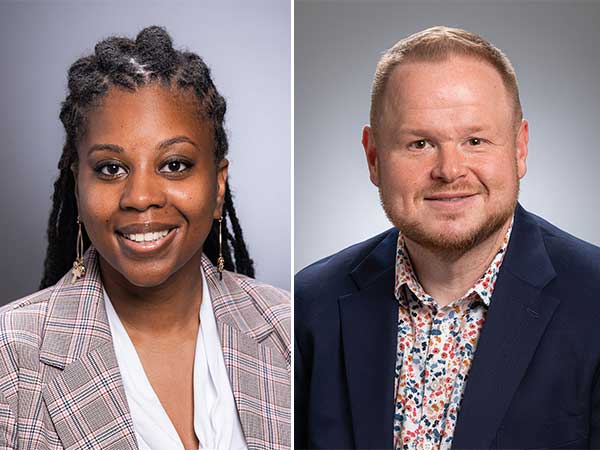 New Leadership for the BSSW and MSW ProgramsThe Department of Social Work is pleased to announce new leadership for our academic programs. Quachetta Jones has been named Director of the BSSW Program, and Donny Gerke has been named Director of the MSW Program.
New Leadership for the BSSW and MSW ProgramsThe Department of Social Work is pleased to announce new leadership for our academic programs. Quachetta Jones has been named Director of the BSSW Program, and Donny Gerke has been named Director of the MSW Program. -
 Social work alumna gives back to the community, emphasizes kindnessShakeitha Tatum grew up in the Titusville and Ensley neighborhoods in Birmingham, Alabama. Although she often saw the University of Alabama at Birmingham’s campus, her most vivid memory of the University is attached to a surprising venue: a nearby grocery store.
Social work alumna gives back to the community, emphasizes kindnessShakeitha Tatum grew up in the Titusville and Ensley neighborhoods in Birmingham, Alabama. Although she often saw the University of Alabama at Birmingham’s campus, her most vivid memory of the University is attached to a surprising venue: a nearby grocery store. -
 Twenty CAS faculty members receive promotionsThe College of Arts and Sciences is proud to announce that 20 faculty members across ten departments have been awarded promotions (including one faculty member who also was awarded tenure). The College of Arts and Sciences is proud to announce that 20 faculty members across ten departments have been awarded promotions (including one faculty member who also was awarded tenure).
Twenty CAS faculty members receive promotionsThe College of Arts and Sciences is proud to announce that 20 faculty members across ten departments have been awarded promotions (including one faculty member who also was awarded tenure). The College of Arts and Sciences is proud to announce that 20 faculty members across ten departments have been awarded promotions (including one faculty member who also was awarded tenure). -
 Social Work Faculty NewsThe University of Alabama at Birmingham’s Department of Social Work would like to congratulate Mary Jacque Carroll and Laurel Iverson Hitchcock, Ph.D., on their successful promotions! During the fall semester of 2024, Carroll will be promoted to associate professor, while Hitchcock will assume the title of professor.
Social Work Faculty NewsThe University of Alabama at Birmingham’s Department of Social Work would like to congratulate Mary Jacque Carroll and Laurel Iverson Hitchcock, Ph.D., on their successful promotions! During the fall semester of 2024, Carroll will be promoted to associate professor, while Hitchcock will assume the title of professor. -
 Social Work welcomes Drs. Kun Wang and Jay O’ShieldsThe Department of Social Work is excited to welcome Drs. Kun Wang and Jay O’Shields as new Assistant Professors.
Social Work welcomes Drs. Kun Wang and Jay O’ShieldsThe Department of Social Work is excited to welcome Drs. Kun Wang and Jay O’Shields as new Assistant Professors. -
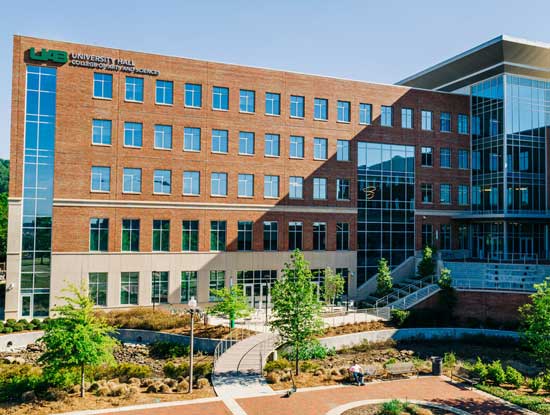 Social work at UAB ranks top 20 percent nationallyThe University of Alabama at Birmingham’s (UAB) Department of Social Work is once again ranked among the top 20 percent of programs accredited by the Council on Social Work Education (CSWE). According to U.S.
Social work at UAB ranks top 20 percent nationallyThe University of Alabama at Birmingham’s (UAB) Department of Social Work is once again ranked among the top 20 percent of programs accredited by the Council on Social Work Education (CSWE). According to U.S. -
 Seven students receive 2024 Dean’s Awards for Outstanding Undergraduate and Graduate StudentsThroughout the Spring 2024 semester, departments across the University of Alabama at Birmingham’s College of Arts and Sciences submitted nominations for the Dean’s Awards for Outstanding Undergraduate Students and Outstanding Graduate Students. The awards are given to exceptional undergraduate and graduate students in CAS who have made significant contributions to the UAB community.
Seven students receive 2024 Dean’s Awards for Outstanding Undergraduate and Graduate StudentsThroughout the Spring 2024 semester, departments across the University of Alabama at Birmingham’s College of Arts and Sciences submitted nominations for the Dean’s Awards for Outstanding Undergraduate Students and Outstanding Graduate Students. The awards are given to exceptional undergraduate and graduate students in CAS who have made significant contributions to the UAB community. -
 “Where there is a need, there is a social worker:” Social worker reflects on the value of the profession and the new UAB Social Work PartnershipThe Social Work Partnership will bring together academicians, students, and social workers currently working in the field to inform best educational practices aligned with the field requirements.
“Where there is a need, there is a social worker:” Social worker reflects on the value of the profession and the new UAB Social Work PartnershipThe Social Work Partnership will bring together academicians, students, and social workers currently working in the field to inform best educational practices aligned with the field requirements. -
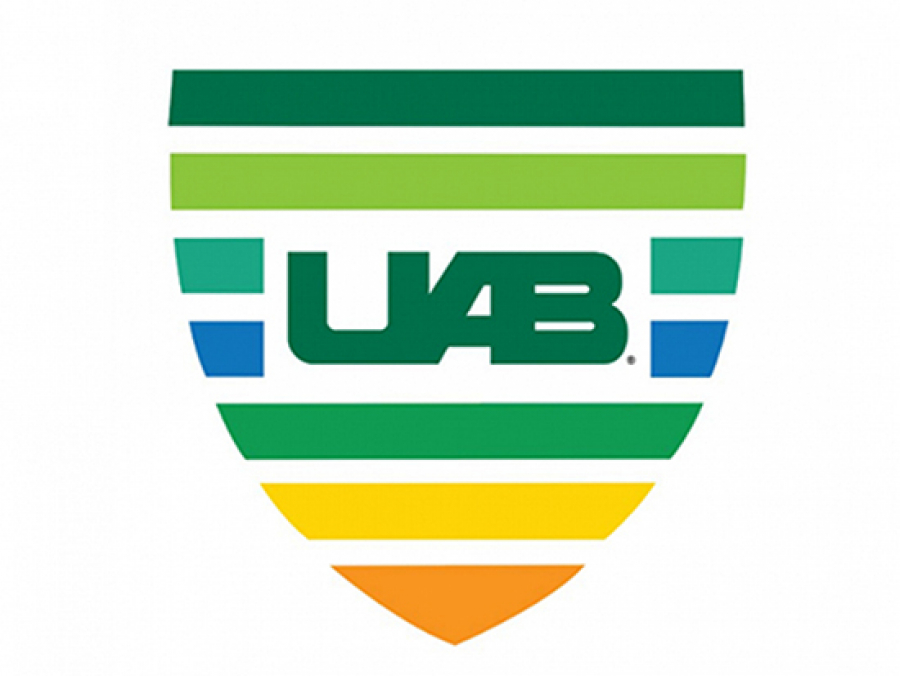 3 chosen as UAB VIPs for first-quarter 2024Vern Bush, Kevin Davis and Brittany Martin are the first-quarter 2024 honorees of the UAB Values in Action Program. Nominations for second-quarter 2024 honorees are open through April 24.
3 chosen as UAB VIPs for first-quarter 2024Vern Bush, Kevin Davis and Brittany Martin are the first-quarter 2024 honorees of the UAB Values in Action Program. Nominations for second-quarter 2024 honorees are open through April 24. -
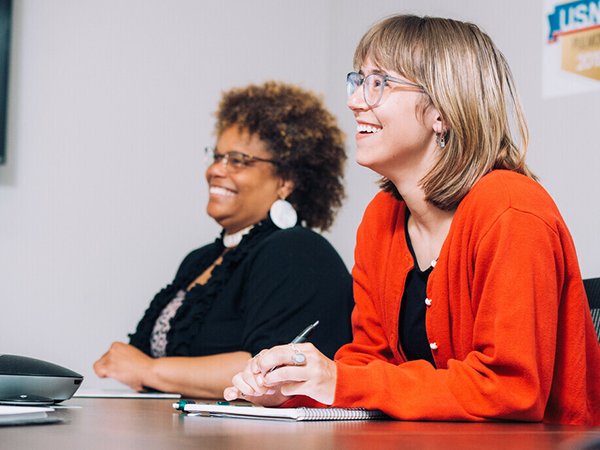 Clinical/Medical Master of Social Work program utilizes ‘the vast resource that is UAB’“There are about 330 accredited Master of Social Work programs around the country, and in some fundamental ways we’re similar to all of them. What sets us apart is that unique clinical/medical focus,” said program director Colleen Fisher, Ph.D., MSW.
Clinical/Medical Master of Social Work program utilizes ‘the vast resource that is UAB’“There are about 330 accredited Master of Social Work programs around the country, and in some fundamental ways we’re similar to all of them. What sets us apart is that unique clinical/medical focus,” said program director Colleen Fisher, Ph.D., MSW. -
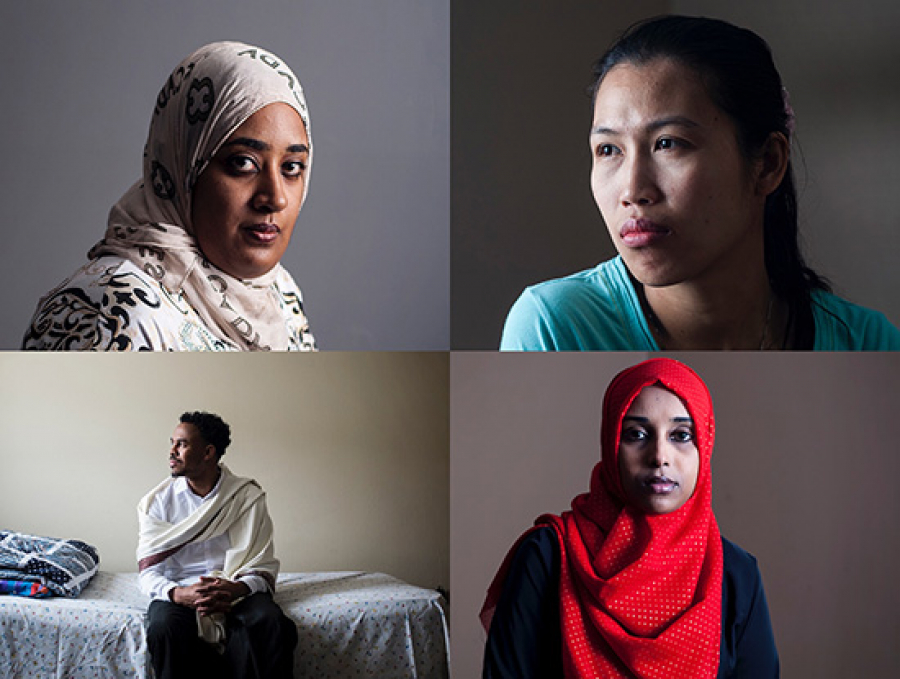 Experience refugees’ compelling stories of resilience through a photo exhibition Feb. 2-March 1“Refugees, Empathy, and Human Rights” is a nationwide traveling exhibition featuring contemporary portraits and poetic stories illustrating the challenges of refugees building new lives in the United States.
Experience refugees’ compelling stories of resilience through a photo exhibition Feb. 2-March 1“Refugees, Empathy, and Human Rights” is a nationwide traveling exhibition featuring contemporary portraits and poetic stories illustrating the challenges of refugees building new lives in the United States. -
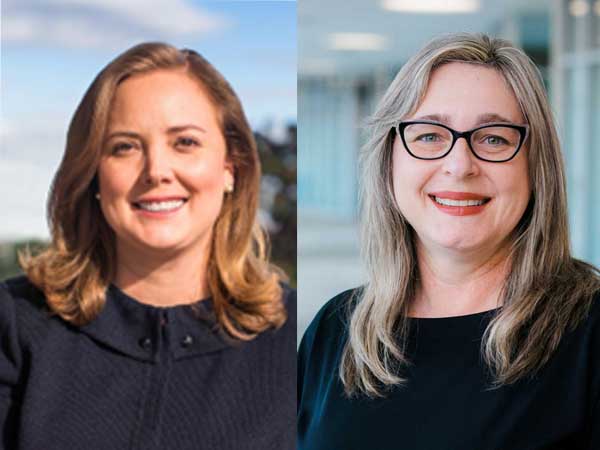 Department of Social Work featured in recent CIPES newsletterThe Center for Interprofessional Education and Simulation (CIPES) highlighted the Department of Social Work in two stories in its recent newsletter. Mary Jacque Carroll and Laurel HitchcockThe Center for Interprofessional Education and Simulation (CIPES) highlighted the Department of Social Work in two stories in its recent newsletter.
Department of Social Work featured in recent CIPES newsletterThe Center for Interprofessional Education and Simulation (CIPES) highlighted the Department of Social Work in two stories in its recent newsletter. Mary Jacque Carroll and Laurel HitchcockThe Center for Interprofessional Education and Simulation (CIPES) highlighted the Department of Social Work in two stories in its recent newsletter. -
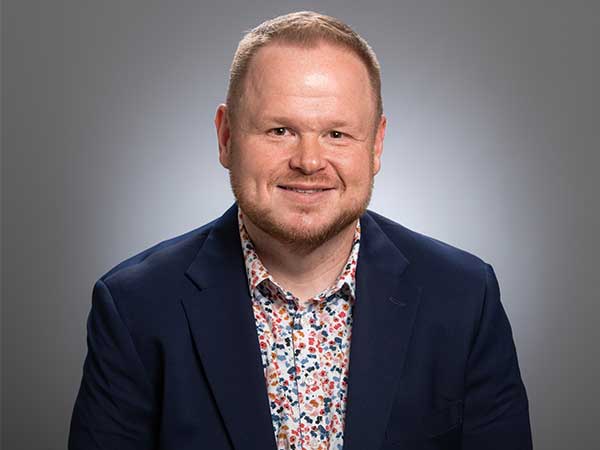 The Department of Social Work welcomes Dr. Donald (Donny) Gerke as an Assistant ProfessorThe Department of Social Work welcomes Dr. Donald (Donny) Gerke as an Assistant Professor.
The Department of Social Work welcomes Dr. Donald (Donny) Gerke as an Assistant ProfessorThe Department of Social Work welcomes Dr. Donald (Donny) Gerke as an Assistant Professor. -
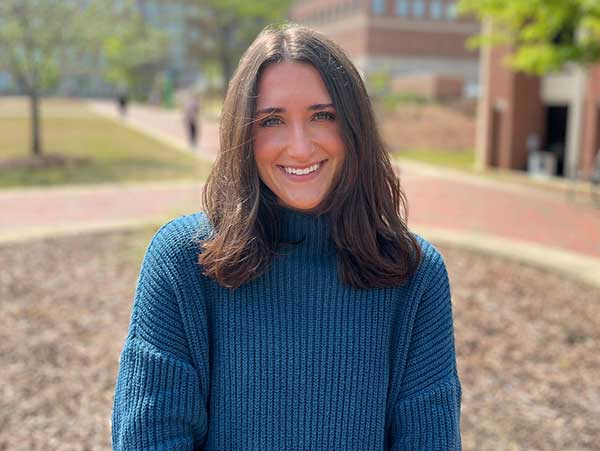 Pursuing a social work path at UABThroughout her college career, Maria Suter-Thallemer has maintained an open mind and a willingness to try new things.Maria Suter-ThallemerThroughout her college career, Maria Suter-Thallemer has maintained an open mind and a willingness to try new things.
Pursuing a social work path at UABThroughout her college career, Maria Suter-Thallemer has maintained an open mind and a willingness to try new things.Maria Suter-ThallemerThroughout her college career, Maria Suter-Thallemer has maintained an open mind and a willingness to try new things. -
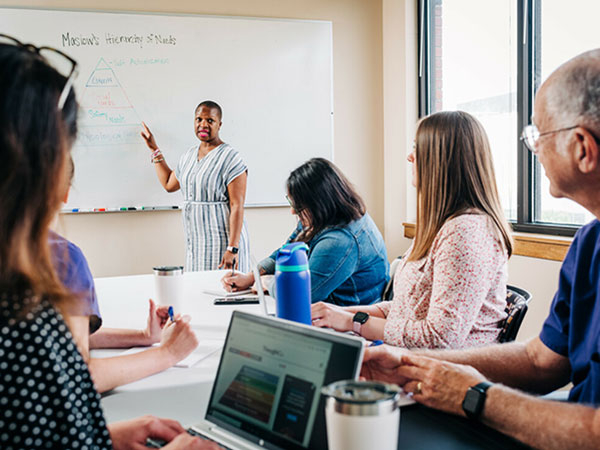 Departments offering events during Social Work MonthThe University of Alabama at Birmingham’s Department of Social Work will present a collaborative event series from March 22-28 for Social Work Month.The University of Alabama at Birmingham’s Department of Social Work will present a collaborative event series from March 22-28 for Social Work Month. The series—titled “Reclaiming Humanity in Alabama Prisons”—is co-sponsored by the J.
Departments offering events during Social Work MonthThe University of Alabama at Birmingham’s Department of Social Work will present a collaborative event series from March 22-28 for Social Work Month.The University of Alabama at Birmingham’s Department of Social Work will present a collaborative event series from March 22-28 for Social Work Month. The series—titled “Reclaiming Humanity in Alabama Prisons”—is co-sponsored by the J. -
 Department of Social Work Student Recipient of Prestigious AwardTashee Brown has been selected to receive the respected Council of Social Work Education Minority Fellowship (CSWE-MFP) for 2022-2023. Tashee is one of only 34 Master’s level students select from over 350 programs.
Department of Social Work Student Recipient of Prestigious AwardTashee Brown has been selected to receive the respected Council of Social Work Education Minority Fellowship (CSWE-MFP) for 2022-2023. Tashee is one of only 34 Master’s level students select from over 350 programs. -
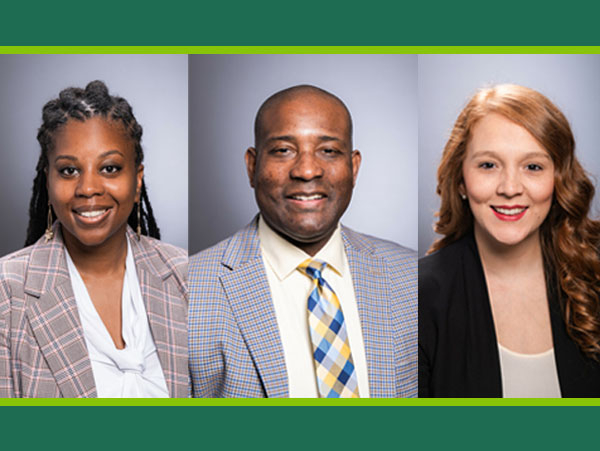 Introducing New Faculty Members in the Department of Social WorkThe Department of Social Work welcomes three new clinical faculty members, Quachetta Jones, Jacqueline Jones, and Tommie Watkins. They began teaching this fall.The Department of Social Work welcomes three new clinical faculty members, Quachetta Jones, Jacqueline Jones, and Tommie Watkins.
Introducing New Faculty Members in the Department of Social WorkThe Department of Social Work welcomes three new clinical faculty members, Quachetta Jones, Jacqueline Jones, and Tommie Watkins. They began teaching this fall.The Department of Social Work welcomes three new clinical faculty members, Quachetta Jones, Jacqueline Jones, and Tommie Watkins. -
 6 ways to reduce your risk of assault, abductionUAB Criminal Investigations Division Captain Amy Schreiner and Stacy Moak, Ph.D., professor of social work, offer insights into the simplest ways to stay safe while on campus and around Birmingham — from safety whistles to self-defense classes.
6 ways to reduce your risk of assault, abductionUAB Criminal Investigations Division Captain Amy Schreiner and Stacy Moak, Ph.D., professor of social work, offer insights into the simplest ways to stay safe while on campus and around Birmingham — from safety whistles to self-defense classes. -
 Being aware of your surroundings — five helpful tips to reduce the chances of abductionUAB social work professor Stacy Moak provides best practices on avoiding abduction during the holiday season and every day of your life.
Being aware of your surroundings — five helpful tips to reduce the chances of abductionUAB social work professor Stacy Moak provides best practices on avoiding abduction during the holiday season and every day of your life.